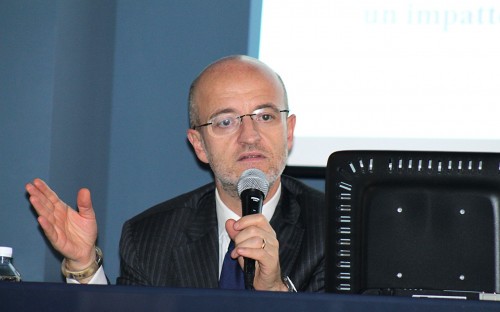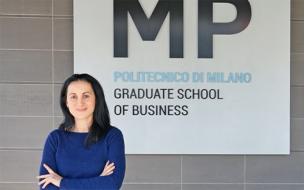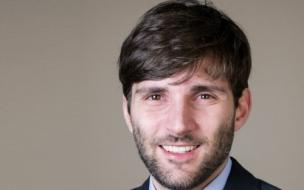Their Global Executive MBA (GEMBA) is a 20-month blended program that enables students to study abroad and experience the delights of one of Europe’s leading cities.
Milan is certainly an alluring city; of 25 participants, an impressive 20 nationalities are represented, and the networking and career opportunities the city has to offer are matched only by a select few. The average GEMBA candidate at Bocconi has 11 years of professional working experience, and is 37 years old.
Ferdinando Pennarola, the new Director of the GEMBA program, shares with us his vision for the program, and provides an overview of the various aspects of the course.
What is the value of a GEMBA for the executive of today?
Today, the best learning takes place where things are happening.
Context-based learning adds value, especially benefiting executives. GEMBA programs are built around the notion of traveling, designed to contextualize specific topics in different corners of the world, and we at Bocconi choose the best cities, where the most important things are happening.
We provide the only GEMBA in Milan, and we are the only GEMBA that travels to Asia twice. In the first year we go to Mumbai, and in the second year we go to Shanghai, as we see both of them as essential business opportunities. If I were a young executive, I’d want to be presented with the best opportunities possible, and I believe Bocconi provides them.
What makes Bocconi’s GEMBA unique?
We are located in the capital of fashion, food and design, so this is added value for executives working in those industries. We are also partnering with other schools to make our own program more distinctive, and our workload is very flexible and fluid.
Our faculty have been engaged for years in dealing with global issues, so they can build value in terms of knowledge creation and knowledge dissemination. They have developed educational programs not only in Italy, but all over the world, and they bring their expertise with them to the GEMBA.
Why should applicants consider the GEMBA over other programs at Bocconi?
The MBA is a full-time commitment, and is for junior businesspeople transitioning to executive roles. This is not the case with an executive program. Our Evening EMBA works best for those who live nearby, and can commute to Bocconi to take their classes. Both our EMBA and our Evening EMBA are also taught in Italian, lending them a regional focus in view of a globalized world.
The GEMBA, however, is taught in English, and is international from the beginning. I do believe that globalization is here to stay, and our GEMBA prepares executives to deal with the challenges it presents.
How does the program retain a regional focus despite offering international opportunities?
The GEMBA is built around a number of residential modules, of which we have 10. Five of these modules are taught in Milan, and we leverage on our local specificities. However, we balance it out with the international modules, which we think complement the Milan experience here very well.
What are the key features of the GEMBA alumni network?
Because of the seniority of our alumni and their sense of belongingness that they’ve built around the program, it’s an incredibly tight network, despite spanning over 100 countries.
Our alumni leverage their networks a lot in organizing their own events and business opportunities, and they find it very easy to share their business issues. I personally believe that they access this network at a crucial stage in their careers.
In what ways is the Bocconi GEMBA embracing educational technology?
I’ve been at Bocconi for a long time, so I’ve had a front-row seat to watch how we have adapted to educational developments. Both Bocconi and the GEMBA program have aimed for years to provide the most accurate and effective learning as possible.
Over the long term I think we will continue to adapt, because the world is only becoming more globalized and there are many things which can’t be learned in a classroom. Massively Open Online Courses are certainly the next frontier, as we work to find ways to engage people more. I certainly see them as more of an opportunity than a threat to the traditional teaching method.
Though we do leverage on online technologies, we only use them where they can bring added value.
As the new Director of Global Executive Education, what are your plans for the GEMBA?
I have designed a new course structure for the GEMBA, which is built around a different sequence of modules and geographical locations. Globalization challenges will also be at the heart of this.
In the long-run, I want to strengthen our networks with other schools and corporations, and offer a more diverse approach to global executive issues. I believe this will add tremendous value to the GEMBA, and I can’t wait to get started.
RECAPTHA :
9c
26
cf
c9







